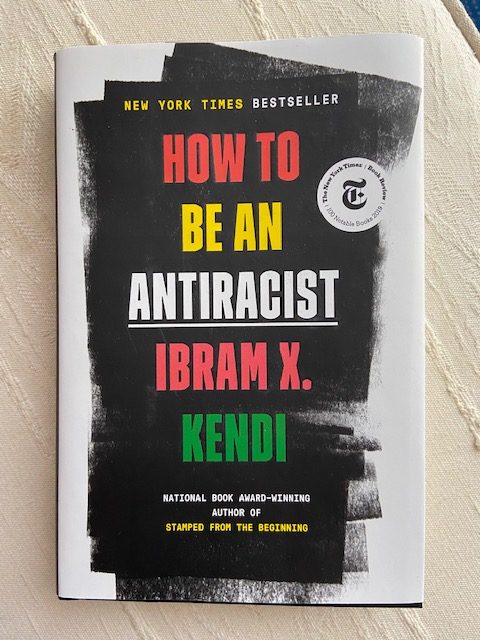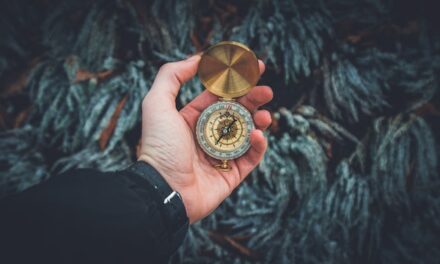The least I can do is shoulder my burden and help my Black friends carry theirs.
Growing up in New Mexico, I saw all the colors of all the people all the time in all the ways. I had friends from Black and Brown communities including Indigenous people (Diné), Mexican, and LGBTQ+, and everything in between, and yes, probably some racist friends. (Don’t worry, I’m not still friends with these people.)
One of the weirdest/hardest things about living in Georgia that I’m still not used to—and I’ve lived in the South for nearly nine years—is how separate the races are.
The other thing I’ve noticed since moving to the South, but which I’ve never been able to put into words, is that I carry the burden to make things better. All because of the color of my skin.
I already hear some of you now: That’s absurd, Carrie. You didn’t choose to be white!
No, I did not.
But neither did my Black neighbors/brothers/sisters/strangers on the street choose to be Black. And they sure as hell didn’t choose the burden that comes with their skin color—a burden which is much heavier, much deadlier, and much more difficult to carry.
So the least I can do is get low, lift with my legs, shoulder my burden, and help my Black/LatinX/Indigenous friends carry theirs. I don’t know how to start a revolution, so I’ll start with what I have: my smile and my brain.
Create Change By Using What You Have
From now on, I’m going to try to make eye contact with every person of color I see—whether it’s at the grocery store or the gas station or anywhere else—and I’m going to smile. This is going to be hard because I’m literally the shyest person ever. I basically don’t look at strangers, no matter what color they are. But the Black person at the grocery store doesn’t know I’m shy. All they see is a white woman refusing to make eye contact with them. You tell me how you’d read into that in Georgia.
A smile seems like the first, most basic anti-racist thing I can do.
With my brain, I’m going to start learning. I joined Lucretia Berry’s Brownicity two weeks ago. I just started reading How to Be an Anti-Racist by Ibram X. Kendi. I started following Austin Channing and other Black creators/educators/writers/pastors on Instagram. It’s not the Black community’s job to teach, but for the people who are teaching, speaking out, and sharing their experiences, I will listen, with open ears and an open heart.

I’m going to mess this up at least 12,000 different ways. But I must not stop. I can’t stop listening, learning, speaking out. And neither can you.
It’s Time to Change
Three weeks ago, George Floyd, a Black man, was horrifically murdered by a police officer. Just a few weeks before that, we in Georgia (and the rest of the world) learned the tragic fate of Ahmaud Arbery, a Black man who was chased down and killed in broad daylight by three white men while going for a run. And in March, Breonna Taylor was killed in her home, as collateral damage in a police search for a suspect who was reportedly already in custody. These events have led to days of protests, marches, and yes, even riots, across the country. The time for observing is over. It’s time to make a change.
I challenge myself as much as I challenge you: if all we do is learn and listen and still don’t act, we’ve done nothing to help.
I have learned—finally—that silence is violence. God gave me white skin (like really white, y’all. I can’t tan, not even a little). In this country, white skin automatically equals privilege. I’ve always believed in giving generously when you have a surplus. Even though I didn’t ask for it, don’t deserve it, and don’t want it, this skin won me a surplus of privilege. From this day forward, I commit to wielding my privilege as a weapon against the whole ugly system that wants me to stay blind and ignorant and on top.
White People Aren’t the Saviors
Let me make one more point before I conclude. White people who are finally starting to wake up and do the work of becoming anti-racist are not the saviors, so let us not even dare to think we are.
We are coworkers in the vineyard.
We are Simon of Cyrene coming alongside Jesus to help him carry his cross.
I challenge myself as much as I challenge you: if all we do is learn and listen and still don’t act, we’ve done nothing to help. I’m just starting out on my learning and listening journey, and it’s an important first step, a crucial first step. But when the time comes—and it will come—I will need to have the courage to act as well.
And finally, I ask for forgiveness. In my Christian tradition, we have a prayer called the Confiteor. In the Confiteor, we confess to God and to our community that we have sinned, “in my thoughts and in my words, in what I have done and in what I have failed to do, through my fault, through my fault, through my most grievous fault.” We end the prayer by asking for prayers: from the saints, the angels, and the sinners in the pew with us.
As I look at my life of white privilege, I make the same confession to you today: that I have sinned, at the very least in what I have failed to do for my brothers and sisters of color, and for this, I am deeply sorry. I ask for your prayers as I begin to take up the mantle of justice. I ask for your prayers as I take my first faltering steps forward. Pray for me to not give up, to be brave, and to keep doing the work.
You are in my prayers, too.




Way to go, Carrie. Welcome to the struggle!
Thank you! Better late than never. Let’s make some positive change!
Wow, Carrie. So proud to know you, to read you, to hear you. We’ve got so much to learn and do.
We are in for a marathon. I’m running along side of you.
Glad to be running with you, Brenda!